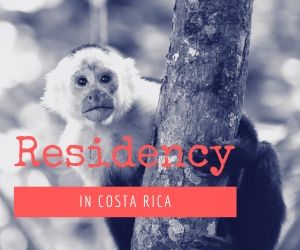|
II.
THERE IS A STRONG cultural imperative that a man should never abandon his offspring: that a man who impregnates a woman should be responsible for their Ch*ld, and that a man who acted as a child’s father should continue to nurture her. But what is the cultural standard when those roles are filled by two different men? Judges, legislators and policy makers have floundered trying to reconcile the issues — a tangle of sex, money, science, betrayal, abandonment and the competing interests of the Ch*ld, the biological parents, the nonbiological father and the state itself. No matter how they decide, the collateral damage is high because fairness for one party inadvertently violates fairness for another.
The challenge is to settle on principles that help answer the riddle of who is the father in each distinct and gut-wrenching situation. In most states, paternity decisions are governed by centuries-old English common law, the presumptions of which hold sway, whether or not they’re codified: a Ch*ld born in a marriage is presumed the product of that union unless the husband was impotent, sterile or beyond “the four seas†when his wife conceived. The aim was to avoid “bastardy†and to preserve family stability — or at least the appearance of it.
Judges around the country have interpreted the common law in so many different ways that what happens in contested-paternity cases depends almost as much on the state as on the details of the case. Some state-court judges have let nonbiological fathers off the hook financially, but they are in the minority. In most states, judges put the interest of the Ch*ld above that of the genetic stranger who unwittingly became her father — and that means requiring him to pay Ch*ld support. Some judges have even rebuked nonbiological fathers for trying to weasel out of their financial obligations. “The laws should discourage adults from treating Ch*ldren they have parented as expendable when their adult relationships fall apart,†Florida’s top court held in a 2007 paternity decision, quoting a law professor. “It is the adults who can and should absorb the pain of betrayal rather than inflict additional betrayal on the involved Ch*ldren.â€
In an age of DNA, when biological relationships can be identified with certainty, it can seem absurd to hew so closely to a centuries-old idea of paternity. And yet basing paternity decisions solely on genetics places the nonbiological father’s welfare above the child’s. Phil Reilly, a lawyer who is also a clinical geneticist, has been wrestling with the policy implications of DNA testing for years, and even he is stumped about how society should manage the problem that men like Mike face. “We’re at a point in our society where the DNA molecule is ascendant, and it’s very much in the public’s consciousness that this is a powerful way to identify relationships,†Reilly says. “Yet at the same time, more people than ever are adopting Ch*ldren, showing that parents can very much love a Ch*ld who is not their own. The difference here for many men is the combination of hurt and rage over the deceit, the fact that they’re twice beaten. I can see both sides of this argument. As a nation, we’re still in search of what the most ethical policy should be. Every solution is imperfect.â€
Once a man has been deemed a father, either because of marriage or because he has acknowledged paternity (by agreeing to be on the birth certificate, say, or paying Ch*ld support), most state courts say he cannot then abandon that Ch*ld — no matter what a DNA test subsequently reveals. In Pennsylvania and many other states, the only way a nonbiological father can rebut his legal status as father is if he can prove he was tricked into the role — a showing of fraud — and can demonstrate that upon learning the truth, he immediately stopped acting as the child’s father. In 2003, a Pennsylvania appellate court bluntly applauded William Doran — who had been by all accounts a loving father to his 11-year-old son — for cutting off ties with the boy once DNA showed they were not related. The judges found that Doran had been tricked by his former wife into believing he was the father of their son, and he was allowed to abandon all paternal obligations.
Courts, of course, deal with paternity cases only when there is a legal dispute. Many men don’t sue because it is expensive or because they suspect they will lose anyway. And then there are those who never even discover the biological truth. How many fall in that category is impossible to quantify. The most extensive and authoritative report, published in Current Anthropology in 2006, analyzed scores of genetic studies. The report concluded that 2 percent of men with “high paternity confidence†— married men who had every reason to believe they were their children’s father — were, in fact, not biological parents. Several studies indicate that the rate appears to be far higher among unmarried fathers.
Some other number of men discover they are not biological fathers, but choose to soldier on rather than go to court, unwilling to upset their Ch*ldren or the relationships they have established. Tanner Pruitt, who owns a small manufacturing business in Texas, paid Ch*ld support for seven years after divorcing his wife. His daughter never looked like him, but it wasn’t until she was 12 that it began to bother him. He told the girl he wanted to check something in her mouth, quickly swabbed some cheek cells and sent the samples off to a lab. After the DNA test showed they weren’t related, he contacted a lawyer, figuring the lab results would release him from child-support payments and justify reimbursement from the biological father. But the lawyer told Pruitt his only option was to take the matter to court and that doing so might mean giving up his right to see the girl at all. It might also alert her to the truth. Pruitt didn’t want to chance either possibility, so he stayed silent and kept paying.
“I spent thousands and thousands of dollars, and it hasn’t cost that biological father a penny, and yeah, I’m angry, but it would have been more harm to her psychologically than it was worth,†says Pruitt, who eventually fought for, and won, full custody. The girl, now 15 years old, recently learned from a relative that Pruitt is not her biological father. Afterward, Pruitt sat with her on a park bench, held her hand and told her the saga. “When it was all over with, she gave me a big hug and told me I’d always be her daddy,†he told me. “Even though she’s not my blood daughter, I was there the day she was born, and I’ve been there ever since, so she’s my daughter, and as long as she’s alive, she’ll always call me Dad.â€
Mike’s first inkling that something was amiss in his marriage was in 2000, when he was digging through a closet looking for the source of some mice. He didn’t find any nests, but he did come upon a plastic grocery bag of love letters to his wife, Stephanie, from her co-worker Rob. Confronted, Stephanie confessed to a fleeting affair but assured Mike that L., then nearly 3, was his. A year later, according to Mike’s undisputed court testimony, while changing the sheets, Mike found Rob’s photograph tucked under Stephanie’s side of the mattress. Despite Stephanie’s assurances that L. was his Ch*ld, Mike’s doubts haunted him. The marriage deteriorated, and as L. approached her 5th birthday, Mike asked Stephanie to take a DNA test with him and their Ch*ld. They told the girl that all three of them had to take a test for the doctor. Mike remembers telling her that rolling the swab inside her cheek wouldn’t hurt one bit.
“The day the results came back was the most devastating day of my life,†Mike said, beginning to cry as he described opening the envelope from the lab and reading there was no chance he was L.’s father. “This little girl,†he whispered, his throat tight, “is not my Ch*ld. I ran upstairs, locked myself in the bathroom and cried and dry-heaved for 45 minutes. I felt like my guts were being ripped out.â€
Mike and Stephanie separated immediately. Mike expected Rob to pay L.’s support and remembers asking Stephanie if Rob would “step up†to be L.’s father. He recalls Stephanie saying no, although Stephanie, in court documents, denies that such a conversation ever occurred. Mike would later claim that he agreed to support L. only because her rightful father would not.
After Mike moved out, the lawyers he consulted told him there was no use contesting paternity: if he denied he was the father, they said, he wouldn’t get to see L. at all, and the state would probably take his money anyway. So when a clerk at the child-support office handed Mike a form confirming he was the natural father, he signed. Since then, Mike — a human-resources analyst for an equipment manufacturer — says he has paid $7,500 a year in Ch*ld support, Ch*ld care, camp and medical insurance.
At first, whenever Mike saw Stephanie after the divorce, he felt a stabbing bitterness, but eventually, he grudgingly accepted the situation. In 2005, he began dating Lori, a woman he had met at his church and whom he would later marry. Lori deeply resented the chunk of Mike’s salary that went to another man’s Ch*ld, while she was reduced to clipping coupons. But she accepted L. They made scrapbooks together, baked scones and pizza and picked berries at a local farm. Neither Mike nor Lori had any idea Rob was in L.’s life until 2006, when Stephanie called and said she was marrying him. It was then that Mike became consumed with resentment. “The courts insist on the best interest of the Ch*ld,†Mike fumes, “but it was in the child’s best interest for Stephanie and Rob not to do this in the first place. So why is that burden all of a sudden put on me?â€
A year after Mike learned about Rob and Stephanie’s marriage, Lori read an article in the local newspaper about a paternity case involving Mark Hudson, a Pennsylvania doctor who discovered he wasn’t related to his 11-year-old son. Like Mike, Hudson had questioned his wife about the child’s origins and was assured he was the father. In Hudson’s case, the state appellate court deemed this misrepresentation fraudulent and dismissed his $1,400-a-month child-support obligation. Lori showed Mike the article and urged him to file suit. For the first time, Mike felt he had a chance at being understood. There were, however, two crucial differences between the cases: Unlike Hudson, Mike had signed a paternity acknowledgment knowing it was a lie. And unlike Mike, when Hudson petitioned to end his legal fatherhood, he wholly disengaged from the Ch*ld, underscoring for the court that he had stopped acting as the boy’s parent.
This dictate to abruptly sever the bond with a vulnerable Ch*ld — to simply cease reading bedtime stories or cheering at soccer games or wiping away tears — sounds coldhearted. But courts in Pennsylvania and many other states are suspicious of men who claim they were defrauded into serving as father but who, after discovering the truth, nonetheless continue to behave exactly as a father would. Looking through the narrow lens of legal reasoning, courts seem to conclude that these men are perpetuating the fraud and worsening the child’s confusion and pain by prolonging a doomed relationship. In reality, however, the requirement to cut ties often destroys the relationship by forcing men to choose between their desire for retribution and their desire to remain the child’s parent.
Hudson chose the former path, though he told me he had hoped his ex-wife would allow him time with the boy. “What do you do with that information?†Hudson says of the DNA results. “Do you just stick it in your back pocket and forget about it?†But if he wanted to maintain that relationship, he was disappointed. The boy’s mother said if Hudson wasn’t going to be the father for financial reasons, he couldn’t see the boy either. Court records show she also told the Ch*ld his father no longer wanted him. Hudson and his former wife have another Ch*ld, a daughter. When he goes to pick her up and tries to talk to the boy, now nearly 17, Hudson says that the boy turns and walks away.
Mike’s enduring attachment to L. became the central question of a hearing before a family-court magistrate in October 2007. Mike acknowledged that he continued to act as L.’s father, even after the DNA results, but argued he did so only because he was conned into believing L.’s genetic father would not assume responsibility. Stephanie testified, however, that she never claimed such a thing. The real issue, her attorney, Todd Elliott, told the court, was that Mike didn’t really want to stop being L.’s father.
“Every time he was given a chance to deny paternity, he never did,†Elliott said, according to the transcript. “He signed consent order after consent order because he wanted to be the father. The testimony here today is that he only did it because of some philanthropic belief that he wanted to step up. That’s not true. . . . He fought for every other weekend. He fought for having her overnight on a Wednesday. He fought for having her not be able to leave the jurisdiction. These aren’t things that someone does because they are just philanthropic. He wants to be the dad; he just doesn’t want to pay support.†Elliott’s accusation infuriated Mike, who believed it accurately described Rob, not him.
The hearing officer was persuaded by Elliott’s argument: Mike hadn’t been defrauded into admitting paternity after the DNA tests, and he had hardly abandoned L. after he learned the truth. Still, the officer ruled, Rob had also acted “essentially as a parent.†During the hearing, Stephanie testified that Rob was the biological father, and that he and L. loved each other. He had taken her on vacations to Disney World, Las Vegas and the ocean, celebrated at her birthday parties, bought her gifts and attended her soccer games and school activities. As such, the hearing officer ordered, Rob should help pay her support, too.
Despite being named a defendant in Mike’s lawsuit, neither Rob nor any legal representative for him ever showed up in court or contested the rulings. But Stephanie did. Her attorney argued in an appeal that parenthood shared by one mother and two fathers “would lead to a strange and unworkable situation.†So, the lawyer reasoned, Rob should not be forced to help pay for L.’s care. David Wecht, the state-court judge charged with hearing the appeal, agreed with Stephanie’s conclusions, albeit for different reasons. Pennsylvania law did not allow for the recognition of two fathers of the same Ch*ld, he wrote in his opinion, and thus he could not order two men to pay paternal support. Wecht concluded that under the law, Mike was L.’s legal father. Fraud is the only way to rebut the key paternity doctrine, and Wecht, like the hearing officer, concluded fraud did not induce Mike to continue as L.’s dad after the DNA results; love did.
In reaching his decision, Wecht looked to a 2006 custody dispute that seemed weirdly similar to Mike’s. A married man named Kevin Moyer learned he was not the genetic father of his 9-year-old son. Still, when the marriage ended, Moyer retained partial custody and paid Ch*ld support. Like Mike’s ex-wife, Moyer’s ex-wife, Vicky, subsequently married the son’s biological father, a man named Gary Gresh, who had had little contact with the boy for his first nine years of life. The Ch*ld lived primarily with Vicky and Gresh, but when he was a teenager, he asked to live full time with Moyer, whom he considered his father. Moyer sought primary custody of the boy. The Greshes fought back, suing to name Gresh as the legal father instead. The appellate court, however, ruled in favor of Moyer. Gresh, the judges said, had given up his right to be a legal father by being entirely absent during the child’s first decade. Moyer, on the other hand, had provided emotional and financial support throughout the boy’s life.
The ruling preoccupied Wecht as he considered the facts in Mike’s case. If the court recognized Moyer’s paternal role despite the lack of genetic tie — and despite the available biological father — how could Wecht disregard the role Mike had played in L.’s life, just because her biological father was now in her life?
Still, the state of the law frustrated the judge. In his opinion, Wecht wrestled with how to apply a law that requires deliberately ignoring genetic facts that are of the utmost importance to the people involved. The law’s exasperating consequence, he wrote, is that the man who “may very well be the biological father is able to avoid any direct support obligation†and the nonbiological father is left with “unjust results.â€
Although Mike sensed that Wecht understood his predicament, he felt trapped by the ruling and he appealed, hoping another judge might find him a way out. When the appellate panel turned him down, Mike brought his plea to the state’s top court. Then he waited.
_________________
"All them women gonna make me,
teach 'em what they don't know how..." TMIB
|









